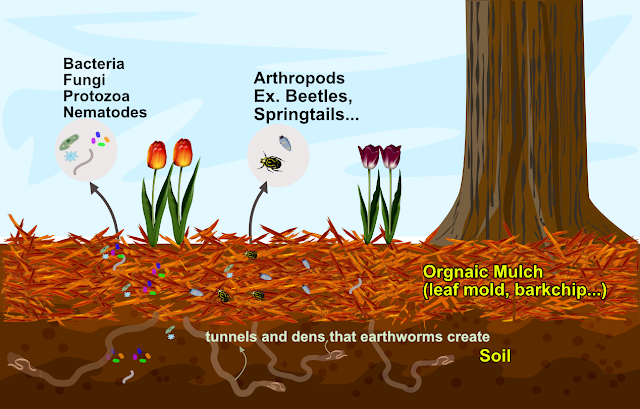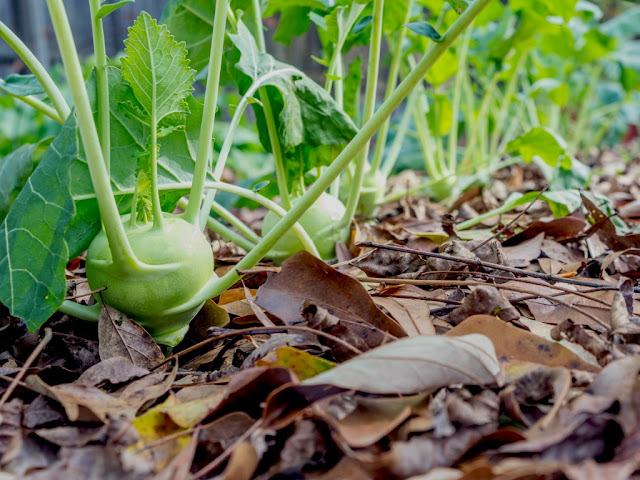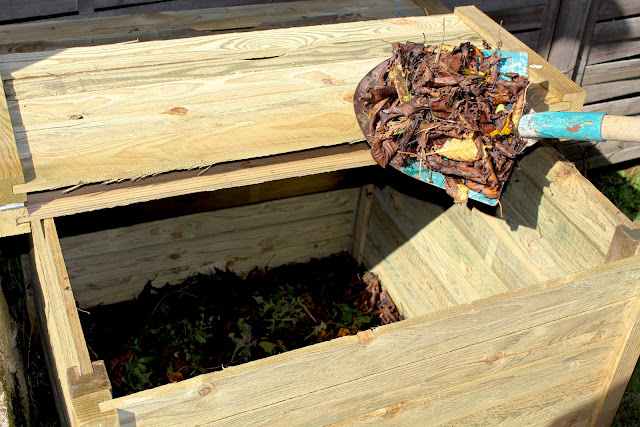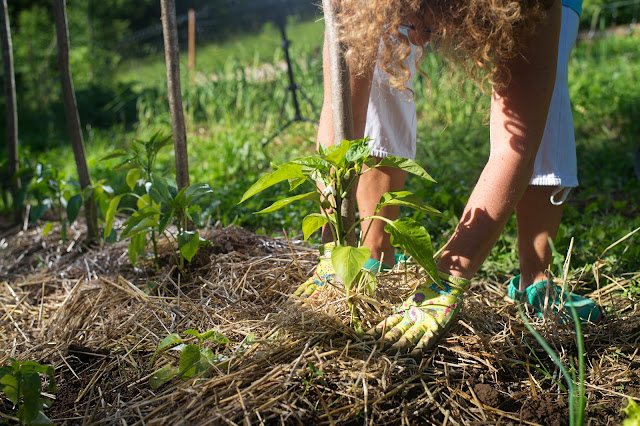You have poor soil, it can't hold water, it doesn't have crumb structure. It either dries too fast or drains too slowly. Your plants look bad and don't thrive.
 |
| Organic mulch will attract bacteria, protozoa, arthropods and earthworms, finally restore soil food web |
If you ever used commercial fertilizer or herbicide, before you notice, you probably already killed the soil because these chemicals destroy soil food webs. Commercial fertilizer is salt. The base of soil food web is bacteria and fungi, they are sensitive to soil pH. Commercial fertilizer will change the soil pH and kill the microbe. If that's the case, you need to restore the soil the organic way.
 |
| Using leave mulch for growing vegetables |
Compost and organic mulch are the best to restore garden soil
Good soil ensures plants have stronger roots and better resistance to pathogens. More importantly, when good bacteria in the soil compete with pathogens, plants will be less prone to disease. So your gardening experiences will be fun but not chores.
Compost is the number 1 organic soil booster. But if you can't compost, the second choice is organic mulch.
Mulch requires less preparation than compost. It can also reduce evaporation from soil, insulate the soil, keeping it from too cold or too hot. The good news is : If you mix ingredients with C:N ratio(30:1) by weight, organic mulch can somehow work like compost. They will attract bacteria, fungi, protozoa, arthropods and earthworms.
What organic mulches can you use?
 |
| making leaf mold in a wooden bin |
How does organic mulch restore your soil?
Where mulch is laid down, bacteria and fungi will be there to eat it. Different mulch favors either bacteria or fungi. If you grow vegetable, bacteria is better. If you grow perennials and trees, fungi are more favorable.
Soon nematodes and protozoa will come to eat bacteria and fungi. We know that bacteria and fungi are storage bags of nitrogen in the soil. When they reproduce more, more nutrients are tied up in their bodies, so nitrogen, sulfur, phosphate won't be available to the weeds. That's why mulch controls weeds so well.
How to apply mulch?
Never place the mulch more than 5cm thick otherwise, it will favor the anaerobic decomposition and have the odor. Also think about the time it needs for decomposition. If you use 5cm-thick bark chip mulching, it will take 3-4 years to decompose while fallen leaves take only 6 months to be fully decomposed.
 |
| Applying straw mulch |
What result can you expect?
Mulch will reduce evaporation, suppress the weeds and insulate the soil during extreme temperatures. Besides these effects, you will slowly see more arthropods, insects and worms present in the soil, which means there are billions of microbes, such as fungi, bacteria and nematodes exist. The fun of gardening has just begun.





0 Comments